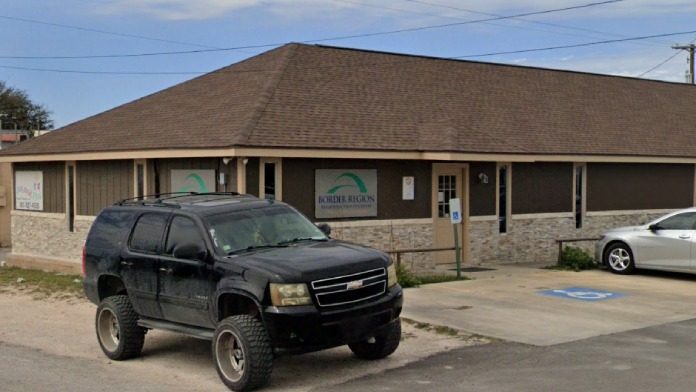Border Region Behavioral Health Center
106 East Amada Street
Hebbronville, TX 78361

About Border Region Behavioral Health Center
Border Region Behavioral Health Center in Hebbronville, Jim Hogg County, Texas is one of a few nonprofit, tax exempt locations contracted by the state to provide mental and behavioral health services to locals. Support is available to adults aged 18 and older regardless of gender, race or background. They accept Medicaid and Medicare and offer sliding scale and discounted fees for those eligible.
The center’s behavioral services support individuals with dual diagnosis mental health conditions who may also be struggling with substance abuse. Before beginning treatment, all clients will be screened either in a 1:1 session or over the phone to determine whether further assessment is needed. The assessment then allows the team to establish which level of care would be most suitable to best support the individual.
For those experiencing an acute emotional episode, crisis intervention services are available to stabilize individuals and support their transition to further care. Peer support services offer clients a sense of community and accountability while case management services support individuals in getting the medical, social, vocational, educational, legal or specialized substance abuse services they need to improve their current situation.
Clients may also access individual, group and family therapy services using cognitive behavioral therapy to help support them with day-to-day life and any difficult mental health symptoms they may be experiencing.
This center is also a certified provider of both the official state Drug Offender Education Program and the DWI Education Course. The former consists of five three hour classes while the latter consists of three four hour classes. The Offender Education Program teaches individuals about the dangers of drug abuse and its effects and helps participants assess their own abusive patterns.
This way, they can develop a plan for positive lifestyle changes to avoid future illegal behaviors. Similarly, the DWI program relates more to the effect drugs and alcohol have on driving skills, but also encourages participants to look at their own behavior and establish a plan to avoid future DWI behavior.
Addiction Treatment Programs
The goal of a young adult program in Texas is to set young people free from the effects of addiction and give them the skills they need to successfully navigate early adulthood. This is accomplished with age-appropriate settings, therapies, and activities.
The Lone Star State offers a host of options for those in search of an adult program in Texas. From inpatient to outpatient care, adults can find a program that meets their needs for effective treatment of substance use issues.
Men’s rehab in Texas can create an environment that makes men more comfortable. Many men in Texas seek out this type of treatment for its gender-specific benefits.
Many gender-specific issues must be addressed during addiction recovery. Women’s rehab in Texas provides the appropriate support for women’s challenges such as body image, motherhood, and trauma.
The goals of cognitive behavioral therapy in Texas include evaluating thoughts and changing thinking patterns that are leading to substance use. This treatment helps participants understand their motives and problem-solve to work through challenges without the use of substances.
Elderly rehab in Texas provides treatment that is best-suited for the age, physical condition, and emotional condition of each participant. Staff are trained in geriatric issues and customize addiction treatment to address these concerns.
Many Veterans can benefit from Veteran’s rehab in Texas. These programs include drug and alcohol detox services, 12-step groups, psychotherapy, relapse prevention, and sober living homes.
Levels of Care
Outpatient rehab in Texas provides a means for addition treatment while you live at home. You will attend regular therapy sessions and typically maintain involvement with a 12-step program. Because it is tailored for each person’s needs, there is no set timeline for completion of outpatient rehab.
A dual diagnosis treatment center in Texas provides programs for people who struggle with both substance abuse and mental illness. Treating both disorders through an integrated approach is essential for recovery.
The initial weeks and months after rehab treatment are often the most difficult. Aftercare rehab in Texas is designed to help you successfully navigate these challenging times and maintain sobriety. You’ll receive emotional, mental, and practical supports, for up to a year or more after treatment.
Accepted Insurance




